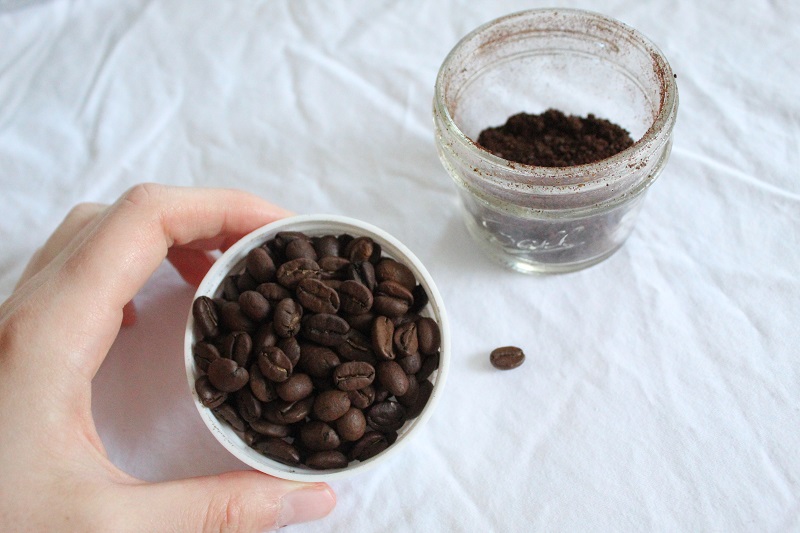
When diving into the world of decaf coffee and histamine, it’s crucial to understand what histamine is. Essentially, it’s a compound involved in our immune responses, regulating physiological function in the gut and acting as a neurotransmitter. For some people, particularly those with histamine intolerance, consuming foods high in histamine can trigger a variety of symptoms, from headaches to skin rashes.
Decaf coffee’s relation to histamine levels isn’t straightforward. It’s influenced by several factors, including the coffee’s decaffeination process and its overall quality. So, is decaf coffee low in histamine? The answer isn’t black and white.
Key Takeaways
- Histamine Content Varies: The levels of histamine in decaf coffee can differ significantly, making it important to choose wisely.
- The Role of Processing: The method used to remove caffeine from coffee can affect its histamine levels. The Swiss Water Process, known for not using chemicals, is often recommended for those concerned about histamines.
- Quality Matters: High-quality, mold-free coffee is less likely to exacerbate histamine intolerance symptoms. Lower quality beans may have higher histamine levels.
- Individual Responses Differ: Everyone’s body reacts differently to histamine. Some may tolerate decaf coffee well, while others may experience adverse reactions.
- Alternatives Exist: For those highly sensitive to histamine, exploring low histamine and mold-free coffee brands might be beneficial.
- Common Symptoms: If you’re sensitive to histamine, consuming trigger foods or beverages like decaf coffee may lead to headaches, nasal congestion, and skin issues.
Decaffeination Processes and Their Impact on Histamine Levels
Decaffeinating coffee is a fascinating process, with the goal of stripping away the caffeine while keeping the coffee’s soul intact. But, have you ever wondered how these processes might impact histamine levels? Let’s brew some understanding on the Swiss Water Process and chemical methods of decaffeination and their roles in this mix.
The Swiss Water Process is like giving coffee a spa day. It uses nothing but water, temperature, and time to gently coax the caffeine out of the beans. This method doesn’t involve chemicals, making it a darling of organic coffee lovers. Why does this matter for histamine levels? Well, since it’s a gentle method that preserves the bean’s integrity, it’s thought that this could also mean less interference with histamine levels. However, the exact impact on histamine isn’t crystal clear, as most studies focus on caffeine removal efficiency rather than histamine changes.
On the other side of the spectrum are chemical methods. These methods use solvents like methylene chloride or ethyl acetate to get the caffeine out. It’s a bit more of a brute-force approach compared to the Swiss Water Process. The solvents do their job well in decaffeinating, but they also might alter more than just the caffeine content. The concern here is that chemical methods could potentially affect the coffee beans’ composition in ways that might not be as friendly to those with histamine sensitivities. It’s a bit like using a sledgehammer where a scalpel might do—effective, but possibly messier.
How do these methods potentially affect histamine levels in coffee? It’s a bit murky. Direct research linking decaffeination processes to histamine levels in coffee is sparse. However, we can brew a logical pot of thought: The less the coffee beans are chemically altered, the less chance there is for histamine levels to rise. This means the Swiss Water Process might be the better bet for those concerned about histamines.
The Role of Coffee Quality in Histamine Content
Diving into the world of coffee, it’s clear that not all beans are created equal. The quality of coffee beans plays a crucial role in determining their histamine content, and understanding this can help you make better choices for your health and enjoyment.
Quality Matters: Think of coffee beans like wine grapes—the conditions in which they’re grown, harvested, and processed matter immensely. Lower-quality beans often come from conditions less controlled for pests and mold, two factors that can significantly affect histamine levels. These beans, sometimes harvested in sub-optimal conditions or stored improperly, can become breeding grounds for mold. And mold is notorious for its histamine-producing capabilities.
Storage Conditions: After beans are harvested, their journey is far from over. The way coffee is stored can either preserve its quality or degrade it. Poor storage conditions, like damp environments, further encourage mold growth, raising histamine levels in the process. This isn’t just about bulk storage; how you store your coffee at home matters too. Keeping it in a cool, dry place helps minimize the risk.
Choosing High-Quality, Mold-Free Coffee: The key takeaway? Investing in high-quality, mold-free coffee is essential, especially for those sensitive to histamines. Look for brands that prioritize organic farming practices, proper harvesting techniques, and meticulous storage. These brands are more likely to produce coffee that’s not just delicious but also lower in histamines. Plus, many now explicitly state their mold-free status, making it easier for you to choose wisely.
Individual Tolerance and Sensitivities
Each person’s response to histamine can be as unique as their fingerprint. Just like some people can devour a spicy meal without batting an eyelid while others reach for water at the slightest hint of heat, sensitivity to histamine varies greatly among individuals. This variance in sensitivity means that while one person might enjoy a cup of decaf coffee without any issues, another might experience uncomfortable symptoms such as headaches, digestive discomfort, or skin irritations.
The importance of monitoring personal reactions to decaf coffee cannot be overstated. Paying close attention to how your body responds after enjoying a cup can give you invaluable insights into your histamine tolerance levels. It’s a bit like being a detective, with your body giving you clues about what it can handle. Some may find they can indulge in decaf coffee daily with no adverse effects, while others might discover that even small amounts trigger symptoms. Listening to your body and adjusting your coffee consumption accordingly is key.
Low Histamine Coffee Alternatives
For those who find that decaf coffee still triggers their histamine intolerance, fear not. The world of warm beverages is vast and varied, offering several comforting alternatives. Herbal teas lead the pack as a fantastic option. With a plethora of choices ranging from chamomile and peppermint to rooibos and ginger tea, these herbal brews can satisfy the palate without the histamine hassle.
Another noteworthy contender is chicory coffee. Made from the roasted and ground roots of the chicory plant, this coffee alternative mimics the rich, full-bodied taste of traditional coffee but comes without the caffeine and, more importantly, the histamine-producing potential. For those missing the ritual of a morning brew but looking to steer clear of histamine reactions, chicory coffee might just be the perfect substitute.
FAQs
Can decaf coffee still trigger histamine reactions?
Yes, while decaf coffee has less caffeine, which is a histamine liberator, individual sensitivities vary. Some might find decaf coffee tolerable, while others may still experience histamine-related symptoms.
Is Swiss Water Processed decaf coffee better for histamine intolerance?
Anecdotally, yes. The Swiss Water Process avoids chemicals, potentially minimizing other irritants that could affect histamine levels. However, individual reactions can vary.
How can I tell if decaf coffee affects my histamine intolerance?
Monitoring your body’s response after drinking decaf coffee is key. Look out for common histamine intolerance symptoms like headaches, digestive issues, or skin flare-ups.
Final Thoughts
We’ve brewed up the essentials: the importance of the decaffeination process, coffee quality, individual tolerance, and delightful alternatives to decaf coffee. Remember, each person’s response to histamine is unique, making personal observation your greatest tool. Don’t hesitate to consult with healthcare providers for tailored advice, and always listen to your body.









